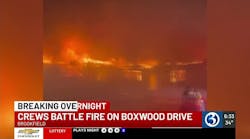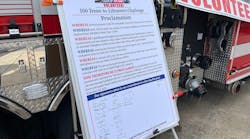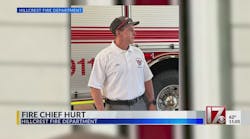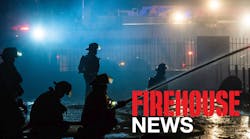This latest chapter in the long-running debate over application of the Fair Labor Standards Act (FLSA) to the fire service marks a significant victory for those who believe career firefighters should be permitted to volunteer their services. Montgomery County career firefighters have been prohibited from volunteering for the local fire and rescue departments since 1993, when the Labor Department required local governments to pay career firefighters overtime pay for volunteering. This ruling followed the 1986 amendments to the FLSA that made it applicable to local government employees. Debate has raged in many jurisdictions regarding how the law applied to the different structures of local jurisdictions.
In December 2001, Montgomery County Attorney Charles W. Thompson asked the Labor Department for an opinion regarding whether a career firefighter/paramedic employed by the county could volunteer to provide similar services for the local fire departments and rescue squads that are a part of the county's integrated fire and rescue services. The Labor Department conducted a five-month investigation that included a review of materials describing the system for providing fire and rescue services in the county, meeting with representatives of the major elements of the system, and analysis of the major court decision applying the FLSA to the emergency services.
Montgomery County is a large suburban area northwest of Washington, D.C. There is a strong county government, with limited local governments. Much of the county and its population lie outside of any town or city limits. The county government, even in areas that are incorporated towns, provides most services. Its combination system includes 16 local fire departments, two rescue squads, and the Department of Fire and Rescue Services, which is a part of the county government. The local departments are privately chartered, non-profit corporations.
Career personnel are county employees assigned to the local departments by the Department of Fire and Rescue Services. The level of staffing ranges from full 24/7 staffing by career personnel at several stations, to one station with two career paramedics who work weekdays only. The Department of Fire and Rescue Services also provides central services, such as dispatching and training.
The county establishes minimum training criteria for all personnel, although the local departments may impose additional requirements on their volunteers. There is a centralized countywide 911 system. Response areas are determined solely on the basis of distance, regardless of local jurisdiction boundary. An integrated emergency command structure incorporates volunteer and career officers at all ranks. In the station, career and volunteer personnel are separately supervised by career and volunteer officers. Each local department has a chief, but there is no countywide fire chief.
In making its determination, the Labor Department relied heavily upon Benshoff vs. Virginia Beach, a 1999 decision in which a federal appeals court ruled that career firefighters in Virginia Beach, VA, could volunteer as paramedics with private rescue squads in the city. The opinion included an extensive analysis of the FLSA and the question of whether an employer-employee relationship existed. That decision is binding in Montgomery County, but the Labor Department needed to decide how the legal principles spelled out in the Benshoff decision applied to Montgomery County.
Critical to the court's decision was a determination whether the City of Virginia Beach's control over the services provided by the rescue squads was sufficient to make the volunteer's services "employment" which is "controlled or required" by the city. The court found that the city's involvement with the provision of emergency medical services was "not insubstantial," but its limited control was not sufficient to make the rescue squad members employees of the city when performing rescue squad services. Further, the rescue squads were the entities that necessarily benefit from the volunteer's willingness to serve, and not the city. There was not an employer-employee relationship between the city and the rescue squad's volunteers.
The Labor Department's opinion letter recognizes that there are a number of differences between Virginia Beach and Montgomery County. However, it concludes that the similarities are such that the volunteers cannot be considered county employees. It notes that there is no evidence that the current structure for providing fire and rescue services has eviscerated the independent nature of the private departments. The departments exercise day-to-day control over their volunteer members, what positions they hold, what they do and when they do it. The county's control over volunteers is primarily exercised by setting minimum standards for operational positions and establishing broad procedures for providing emergency services. However, these elements did not create enough control to make the volunteers into county employees.
The Labor Department's interpretation reinforces the legal principle that employment status is determined by the amount of control asserted by a jurisdiction. The critical elements of this test are the extent to which an employing jurisdiction controls the selection, retention and daily activities of the volunteers. Although the relationships between local governments and volunteer fire departments vary, this legal framework will allow career firefighters in many places to also serve as volunteers.
Neither the 4th Circuit Court of Appeals decision nor the Labor Department's interpretation is going to end the long and often acrimonious debate about whether career firefighters should be allowed to serve as volunteers. However, the legal framework for determining how the FLSA applies certainly has been clarified.
Steve Blackistone, a Firehouse® contributing editor, is an attorney and a member of the Bethesda-Chevy Chase Rescue Squad in Montgomery County, MD.




